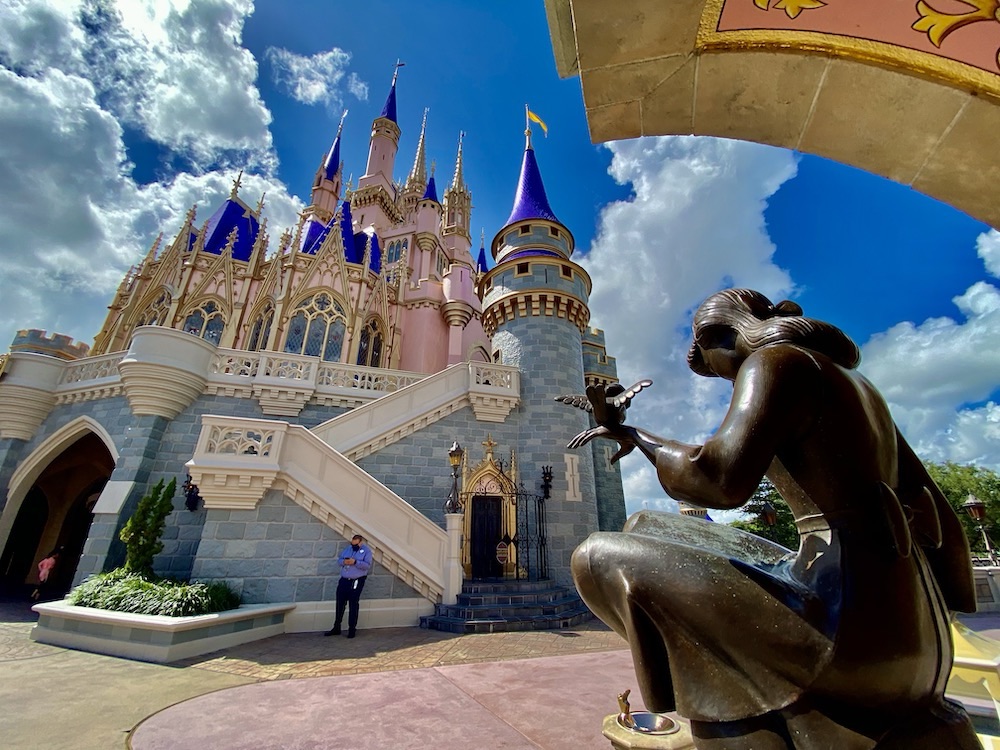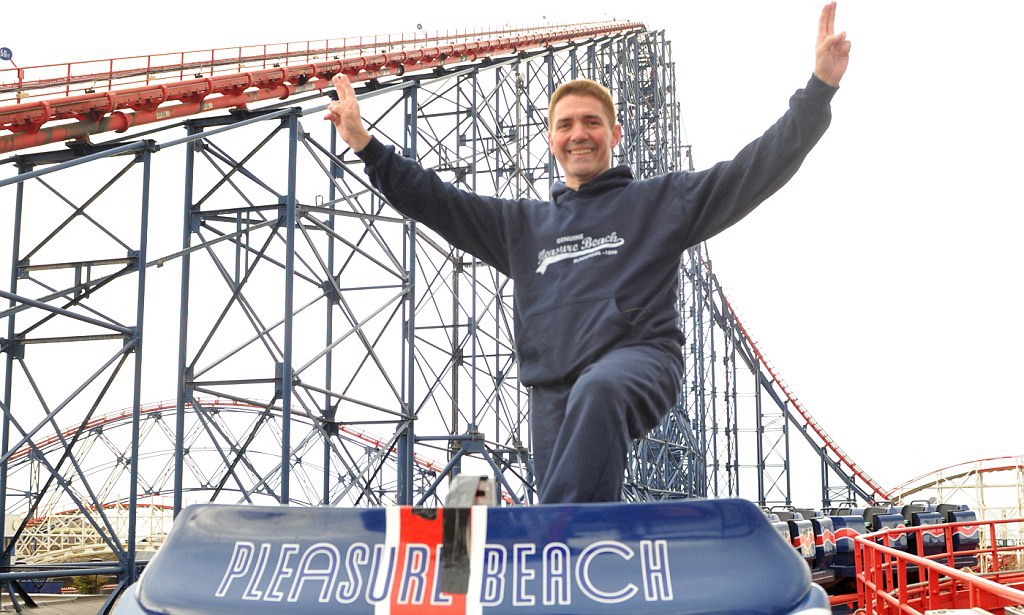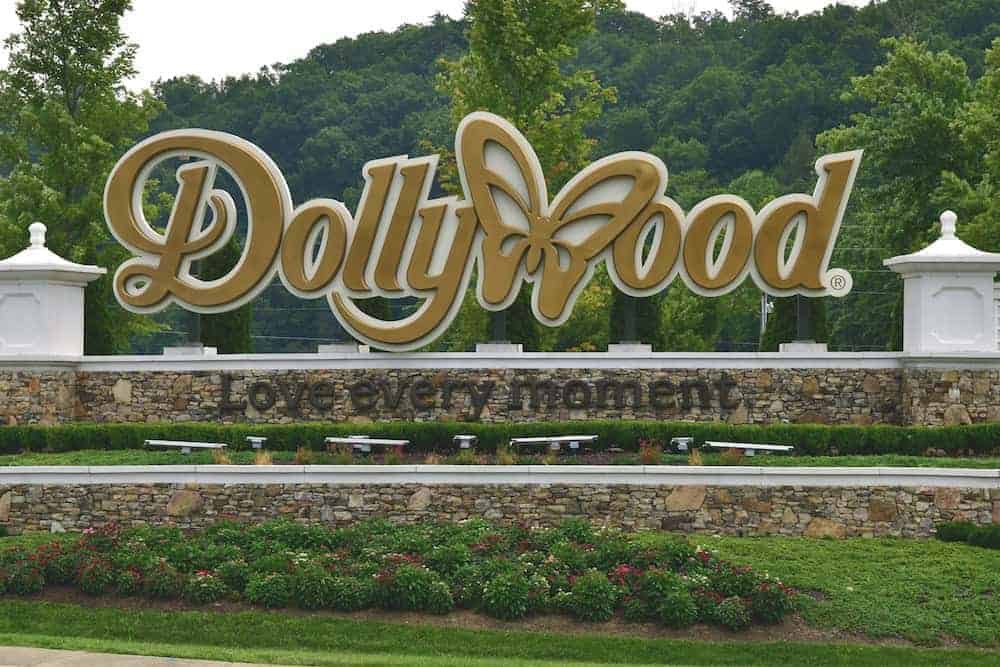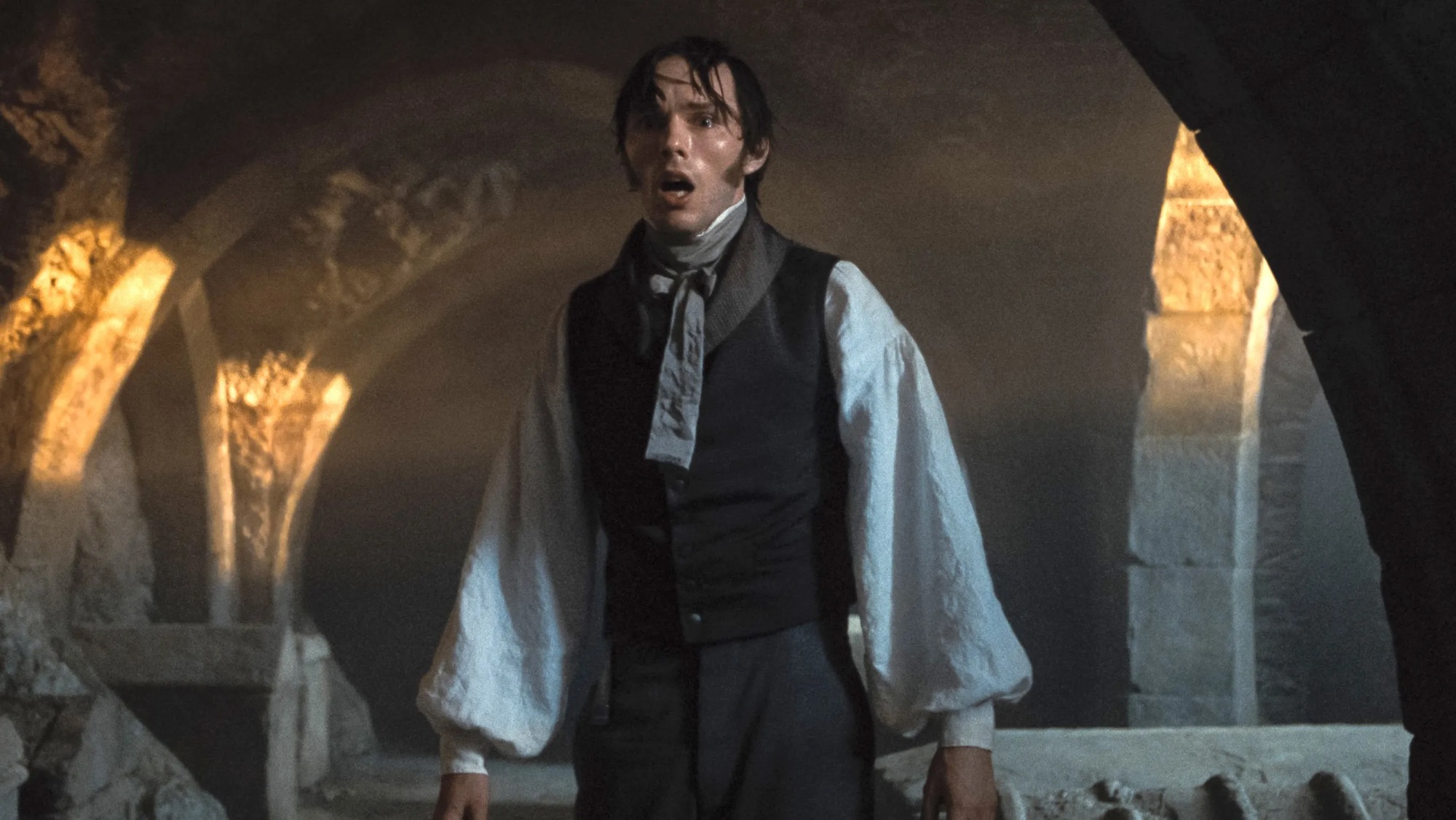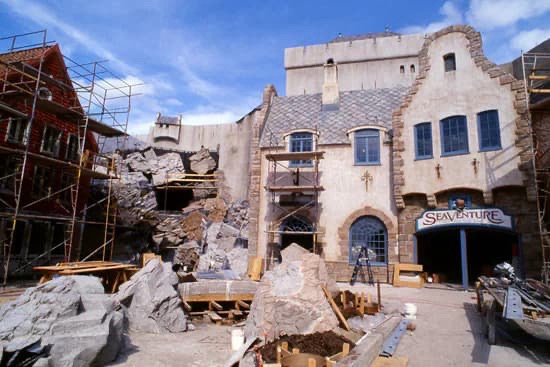For decades, Walt Disney World has been the ultimate family vacation destination, where the magic of childhood dreams came to life and memories were made that lasted a lifetime. But in recent years, many loyal fans and casual visitors alike have expressed concerns that the experience isn’t what it used to be. What happened to Walt Disney World, and why does it seem like the magic is fading? Let’s delve into the factors that have led some of Disney’s most loyal fans to feel that the iconic theme park is no longer living up to its legendary reputation.
The Rising Cost of Magic
Of course, it goes without saying that one of the most glaring changes at Walt Disney World has been the steady increase in costs. Ticket prices have skyrocketed over the past few years, with the price of admission now varying depending on the season and the park you plan to visit. The introduction of tiered pricing and date-based ticketing has made it more difficult for families to budget for a trip, and for some, the cost has become a non-starter.
Beyond the tickets themselves, the costs and the necessity of add-ons has also risen significantly. The introduction of Genie+, a paid service that replaced the previously free FastPass system, has been particularly controversial. Genie+ allows guests to skip the standby lines for select attractions, but at an additional daily fee. While some see this as a way to enhance their experience, others feel that it unfairly favors those who can afford to pay extra, leading to a more class-divided park experience.
Parking fees at Disney’s on-site hotels were also introduced, much to the dismay of loyal guests who had long enjoyed complimentary parking. However, Disney quickly reversed this decision after a notable decline in hotel reservations, acknowledging the backlash from fans who felt that this was a step too far in nickel-and-diming visitors. The swift reversal of the parking fees demonstrated that even Disney can misjudge the balance between profitability and guest satisfaction, though it also highlighted how closely the company is watching its bottom line.
Dining, souvenirs, and other experiences within the parks have seen price hikes as well, leaving many to question whether the overall value of a Walt Disney World vacation is even worth the cost anymore.
Overcrowding: Too Many Guests, Not Enough Magic
Despite the rising costs, Walt Disney World often feels more crowded than ever. The parks can be packed, especially during peak seasons like summer, spring break, and the Christmas holiday season. These crowds lead to long wait times for attractions, congested walkways, and difficulties in securing reservations for dining or other experiences.

Disney has tried to manage the crowds by implementing a park reservation system, requiring guests to reserve their entry into a specific park on a specific day. While this was initially introduced during the COVID-19 pandemic as a way to manage capacity, it has remained in place and continues to frustrate some guests who feel that it adds an extra layer of stress to planning their vacation.
Overcrowding not only impacts the enjoyment of the attractions but also diminishes the overall atmosphere of the parks. Instead of a leisurely, immersive experience, many guests find themselves rushing from one attraction to the next, trying to make the most of their time while battling large crowds.
Changes to Iconic Experiences
Walt Disney World has always been a place of change and innovation, with new attractions, shows, and experiences regularly being introduced. However, some of these changes have not been well-received by longtime fans, who mourn the loss of classic attractions and experiences that held special meaning.
For example, the reimagining of classic rides like Splash Mountain into attractions based on newer Disney intellectual properties (IPs) has sparked debate among fans. While these updates aim to modernize the parks and appeal to a new generation, they can also feel like a loss of the unique charm that made Disney World special.
Moreover, some beloved entertainment options have been eliminated altogether. The abrupt end to nighttime parades, the reduction of live entertainment, and the phasing out of certain character experiences have left some guests feeling that the parks have lost part of what made them magical. The shift towards more IP-based attractions at the expense of original concepts has also led to concerns that Disney is prioritizing brand synergy over creativity.
Universal Orlando: A Real and Major Threat to Disney’s Market Share
While Disney grapples with these challenges, Universal Orlando has emerged as a formidable competitor, threatening to take a significant share of the Orlando theme park market. Universal’s recent and upcoming developments, particularly the highly anticipated Epic Universe, have been making waves in the industry, showcasing cutting-edge technology and innovative attractions that are poised to set new standards in theme park entertainment.
Epic Universe, set to open in 2025, promises a level of immersion and technological advancement that many believe Disney is struggling to keep up with. Universal has invested heavily in the latest ride systems, immersive environments, and interactive experiences, creating an attraction lineup that feels fresh, exciting, and on the cutting edge of what’s possible in the industry today.

In contrast, some Disney’s newest attractions are still relying on technology that is a decade old. While Disney once led the way in theme park innovation, the company now seems to be playing catch-up. This has led to a perception that Disney is no longer the leader in theme park experiences but is instead trying to maintain its market position with nostalgic offerings rather than groundbreaking innovation.
Disney’s reliance on nostalgia is increasingly seen as its primary selling point, but even that is starting to wear thin for long-time fans. The constant reimagining of classic attractions to fit newer Disney IPs has been met with mixed reactions. Fans who grew up with these rides feel a sense of loss as their favorite attractions are replaced with what they perceive as standard rides with an IP “slapped on” rather than being thoughtfully designed experiences in their own right.
Inclusion or Exclusion? Disney’s Struggle with Accessibility
Inclusion has long been one of Disney’s guiding principles, forming part of the “Five Keys” that shape every aspect of guest service at the parks. These keys—Safety, Courtesy, Show, Efficiency, and Inclusion—are designed to ensure that every guest has a safe, enjoyable, and welcoming experience. The “Inclusion” key was added in 2020, reflecting Disney’s commitment to creating an environment where everyone feels respected and valued.

However, recent changes to Disney’s Disability Access Service (DAS) program have sparked criticism, with some arguing that the company is becoming less inclusive, particularly for guests with disabilities. DAS was originally designed to assist guests who have difficulty waiting in line for attractions due to a disability, allowing them to schedule return times for rides rather than standing in the queue. But changes to the program have made it more difficult for some guests to qualify for and use DAS, leading to accusations that Disney is failing to accommodate those who need it most.
These changes come at a time when Disney is under increasing pressure to deliver greater value to shareholders. The current macroeconomic environment has led the company to focus heavily on cost-cutting measures and revenue generation strategies. While this focus may boost short-term profits, it has raised concerns that Disney is prioritizing shareholder value over guest satisfaction—a classic example of late-stage capitalism where the drive for profit begins to overshadow the company’s core values.
The Risk of Late-Stage Capitalism
Disney’s shift towards prioritizing shareholder value at the expense of guest experience is not without risks. In the pursuit of maximizing profits, Disney has made decisions that some feel are alienating their most loyal customers. By cutting back on services, increasing prices, and making it harder for guests to access once-standard perks, Disney risks losing the very guests who have been the backbone of its success for decades.
One of the most glaring examples of this shift is the company’s recent focus on the “first-time visitor” demographic. Disney has heavily marketed its parks to international tourists and first-time visitors, often at the expense of repeat guests. While this strategy may bring in new revenue streams in the short term, it is not sustainable in the long run. The market of first-time visitors will eventually dry up, and without a strong base of repeat guests, Disney could find itself struggling to maintain its current levels of attendance and revenue.
Moreover, the erosion of guest loyalty could have a cascading effect on Disney’s brand. If the company becomes known more for its corporate greed than its magical experiences, it will become increasingly difficult to attract new guests. The once-strong emotional connection that guests feel towards Disney could be replaced by a more transactional relationship, where visitors see a trip to Disney World as just another vacation rather than a special, once-in-a-lifetime experience.
Decline in Service Quality
Another major complaint that has surfaced in recent years is a perceived decline in the quality of service at Walt Disney World. Disney Cast Members, known for their friendliness and commitment to creating magical moments for guests, are still praised for their efforts. However, there are signs that service quality has suffered due to reduced staffing levels and increased demand.

For example, guests have reported longer wait times for guest services, less frequent cleaning, and fewer opportunities for spontaneous magical interactions. The “Disney Difference,” once a hallmark of the parks, seems to be fading as the company focuses more on efficiency and profit margins. The reduced availability of Cast Members to go above and beyond for guests has been disappointing for those who remember a time when Disney’s customer service was unrivaled.
The introduction of paid services like Genie+ and Lightning Lane (which allows guests to skip lines for individual attractions at an additional cost) has also added to the perception that Disney is now more concerned with monetizing every aspect of the guest experience than with providing exceptional service. For many, these changes have made a trip to Disney World feel more transactional and less magical.
Corporate Decisions: Profit Over Magic?
Disney’s corporate decisions in recent years have been another source of frustration for many fans. The company’s focus on maximizing profit has led to changes that some feel prioritize revenue over guest satisfaction.
The replacement of the free FastPass system with the paid Genie+ service is just one example of this shift. The discontinuation of the complimentary Magical Express bus service, which provided transportation between Orlando International Airport and Disney hotels, is another. Disney now encourages guests to use paid options like the Mears Connect service or ride-sharing apps, adding an additional cost and inconvenience for many visitors.
Even the way Disney handles its annual passholders has changed. Once considered the most loyal of Disney’s guests, annual passholders have faced restrictions on park entry, increases in pass prices, and the elimination of perks like free PhotoPass downloads. These changes have led to a sense that Disney is taking its most dedicated fans for granted in favor of courting higher-spending tourists.
Can Disney Reclaim Its Magic?
The question now is whether Disney can turn things around and recapture the magic that made Walt Disney World the “Happiest Place on Earth.” There are no easy answers, but one thing is clear: if Disney continues down its current path, it risks alienating the very guests who have made it successful for so long.
The company must find a way to balance the need to generate profit with the core values that have defined the Disney brand for nearly a century. This will require a shift in focus from short-term gains to long-term guest satisfaction. Disney must recognize that its magic lies not just in its attractions and characters but in the experiences and memories it creates for its guests.
If Disney can once again prioritize the guest experience over shareholder value, it has the potential to not only regain the trust and loyalty of its most dedicated fans but also to set a new standard for what a theme park experience can be. The magic of Walt Disney World may be fading, but it’s not gone—there’s still time for Disney to bring it back.

